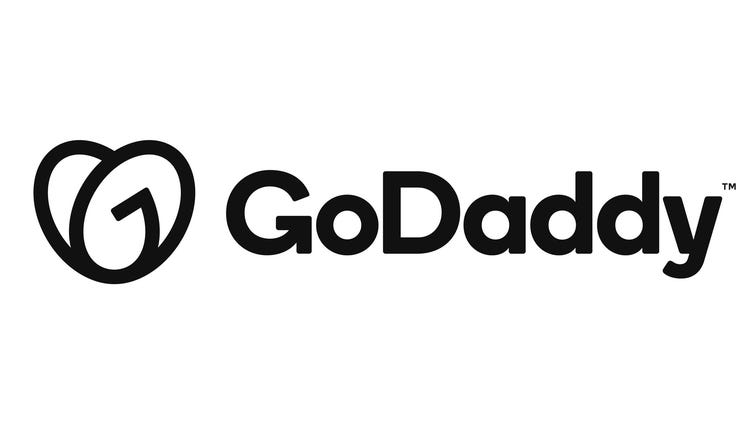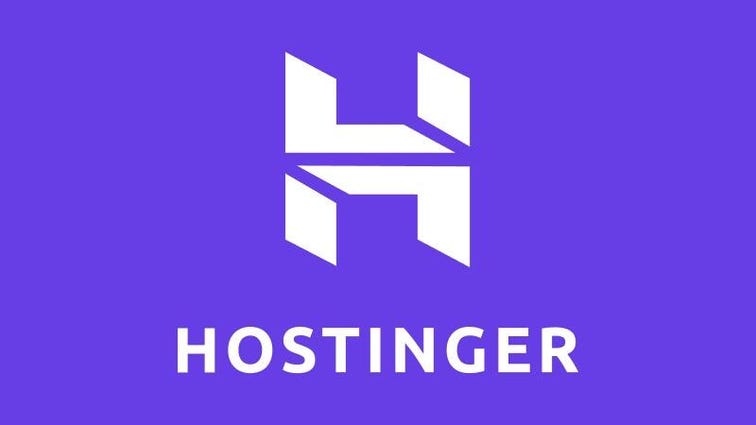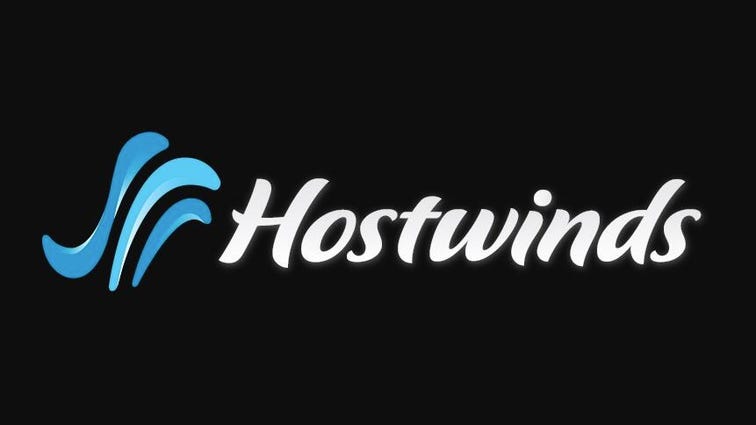Whether you’re trying to give your small business a little more online presence or trying to set up a personal portfolio to show off your chops to prospective new bosses, nothing simplifies your life like finding the right web hosting provider. But finding the best web hosting service for your needs can be a difficult venture. Maybe you need WordPress (or managed WordPress hosting), but you also want a web host that holds its own, provides 24/7 customer support and doesn’t make you deal with excessive downtime. Maybe you want an uptime guarantee. Don’t worry that your list of requirements is too long: Standout VPS hosting and quality customer support can be yours, and all for a price that won’t break the bank.
Here, we take a close look at the pros and cons of the best web hosting services available, including DreamHost, A2Hosting, GoDaddy Web Hosting and many more web hosting companies with great customer support reputations. So if you’re looking for the web host with the most, the best web hosting platform is just a scroll away.
Our list focuses on commercial offerings from the best web hosting companies. These companies supply the services you want — a WordPress hosting plan, a shared hosting plan, virtual private servers and many other web hosting services, along with competent customer support and a variety of monthly and annual hosting provider packages.
What is web hosting?
A web hosting service maintains the servers that house the websites and provide a hosting platform for each of them. When you buy an annual or monthly hosting plan, you’re essentially renting space on a server that stores all the data needed for people to view your website. Hosting services are available at a wide range of prices — from just a few dollars a month to thousands of dollars. And the best web hosting provider for your specific needs will depend largely on what your needs are and what your budget is.
How we chose the best web hosting service
It’s important to note that we didn’t explicitly “test” the web hosting provider options on this list. Instead, we compiled a competitive overview based on a variety of factors, including third-party ratings and features offered by each web hosting company and shared hosting provider. We’ve also weighted the rankings of each hosting provider solution by the Better Business Bureau and TrustPilot, to weed out weak links and better determine the best web hosting service available. With that data in hand, we split them into three tiers.
Best web hosting providers (top tier): These web host vendors all have a rating of A or higher from the Better Business Bureau, and a rating of 3.8 or higher out of 5 from TrustPilot. With the exception of three vendors with between 300 to 400 pieces of user feedback, all of the TrustPilot rankings are based on at least one thousand user reviews. All of the vendors listed in our top picks also say they offer 24/7 support and an uptime guarantee of 99% or better. The best of the best web hosting options with the greatest customer service and satisfaction will be found here.
Web hosts worth checking out (middle tier): These web host vendors all have A+ BBB ratings, but not enough TrustPilot reviews for us to consider that rating as impactful, whether it’s positive or negative. You might find a true gem in this tier, but without more feedback, we can’t say for sure.
Other web hosting options (third tier): One of these web host vendors — MochaHost — currently has an F rating from the BBB. Others have TrustPilot ratings below 3.5, though in three cases, that’s from fewer than 500 users.
Important caveats you should keep in mind: The Better Business Bureau does not rate companies outside of North America, and to be BBB Accredited, companies need to pay a fee to the organization. TrustPilot, meanwhile, also offers a paid tier that provides companies more interaction with their user ratings. It also removed 2.2 million fake reviews in 2020.
If you want more advice on what to keep in mind while shopping for a web hosting solution, the different types of web hosting available and tips on speeding up your website, make sure you scroll to the bottom of this page.
A note on pricing: We’ve made every effort to verify that the prices listed here were accurate at the time of last publication. However, prices in this category are subject to frequent fluctuations and they’re consistently subject to special offers and limited deals. Furthermore, many of the prices listed here reflect the monthly rates if you prepay for 12 months of service or more. Please click through to the vendors in question to verify current pricing at any given time.
Website hosting definitions
When shopping for a web hosting service, you’ll see a lot of terms thrown around that you may not understand. Here are some of the typical hosting type options you might see, and whether they’re what you’re looking for.
- Cloud-based hosting is a great option if you want a lot of storage space and it allows you to use cloud computing. There are many advantages to cloud hosting, including guaranteed server resources, redundant data storage and unlimited website growth.
- E-commerce hosting is a popular option for many online businesses. In addition to helping you run an e-commerce site, many web-hosting service providers can also offer you a web server to host your website along with an email server and other standard web-hosting features.
- Reseller hosting is ideal for people who are interested in using their allotted hard drive space and bandwidth to host websites on behalf of third parties. To do this, the reseller will need to purchase the host’s services wholesale and then sell them to customers separately for a potential profit at retail prices.
- WordPress hosting is an ideal platform for anyone interested in making a custom-built website. The website hosting company is popular with customers because it lets you build a professional custom WordPress website using a variety of website builder templates, plug-ins and widgets.
- Shared hosting is typically the most basic and least expensive plan available. While a shared hosting provider should have everything you need for a personal or small business site, you are sharing resources with others on the same server, so if your site grows, you may need a different plan.
- Virtual private server hosting is a step up from shared hosting, allowing you to get similar capabilities and performance to a dedicated server for their sites, without going up to a dedicated server service. A managed VPS hosting service is typically more expensive, but is best for those with less technical backgrounds as it lets the company take care of the software and system updates you request. An unmanaged VPS hosting service means the hosting provider is only responsible for the physical server and making sure it’s available — you’ll need to take care of maintenance, upgrades and software installation.
- Dedicated server hosting is the option for websites with large numbers of visitors. With this more expensive plan, you’ll get a physical server (or multiple servers), giving you total control over that machine and far more resources for running your site.
Best web hosting providers

 \n ","topic":"","ttag":"","variant":"","viewguid":"","event":"listicle|image|2","correlationId":"","_destCat":"http:\/\/cnetpartner.go2cloud.org\/aff_c?offer_id=3&aff_id=1&source=cnet&aff_sub=[subid_value]&aff_sub2=cnetbestpage","productName":"","formatType":"IMAGE","location":"LIST","position":2,"sku":"","dwLinkTag":"article-body|listicle|image","selector":"#article-body #listicle-37087f4c-9ae3-4dfb-abbb-3b0cae2543d6 .itemImage"}}” rel=”noopener nofollow” target=”_blank”>
\n ","topic":"","ttag":"","variant":"","viewguid":"","event":"listicle|image|2","correlationId":"","_destCat":"http:\/\/cnetpartner.go2cloud.org\/aff_c?offer_id=3&aff_id=1&source=cnet&aff_sub=[subid_value]&aff_sub2=cnetbestpage","productName":"","formatType":"IMAGE","location":"LIST","position":2,"sku":"","dwLinkTag":"article-body|listicle|image","selector":"#article-body #listicle-37087f4c-9ae3-4dfb-abbb-3b0cae2543d6 .itemImage"}}” rel=”noopener nofollow” target=”_blank”>


Dreamhost
Pros:
- 97-day money-back guarantee
Cons:
- Extra cost to add email
- No reseller hosting
- Phone support only during certain hours
With an A+ rating from the Better Business Bureau and 4.8 out of 5 stars on TrustPilot, DreamHost is one of our most recommended web hosting providers for several reasons. First, it offers a custom control panel, which allows you to more easily manage your own hosting. While live phone customer support isn’t available 24/7, the provider is responsive to live chat and tickets. DreamHost also uses superfast SSDs for all its storage, has a free SSL certificate (for more secure web browsing) and provides SSH access for those plans that are intended for more technical users.
Other things we like about Dreamhost: It offers free shared website and email hosting to 501(c)(3) nonprofits. For all others, the pricing for a hosting plan is pretty transparent — there are no hidden gotchas in the rates. Plus, it provides a 97-day money-back guarantee, one of the most generous offers available.

 \n ","topic":"","ttag":"","variant":"","viewguid":"","event":"listicle|image|3","correlationId":"","_destCat":"https:\/\/www.siteground.com\/index.htm?afcode=5dc3624833ba7a9eb4a214533cc11090","productName":"","formatType":"IMAGE","location":"LIST","position":3,"sku":"","dwLinkTag":"article-body|listicle|image","selector":"#article-body #listicle-82e82dd7-9300-4c8a-b0ee-fd520a95a17e .itemImage"}}” rel=”noopener nofollow” target=”_blank”>
\n ","topic":"","ttag":"","variant":"","viewguid":"","event":"listicle|image|3","correlationId":"","_destCat":"https:\/\/www.siteground.com\/index.htm?afcode=5dc3624833ba7a9eb4a214533cc11090","productName":"","formatType":"IMAGE","location":"LIST","position":3,"sku":"","dwLinkTag":"article-body|listicle|image","selector":"#article-body #listicle-82e82dd7-9300-4c8a-b0ee-fd520a95a17e .itemImage"}}” rel=”noopener nofollow” target=”_blank”>


SiteGround
Pros:
- Enterprise hosting options
- 100% renewable energy match
Cons:
- More costly
- Phone support only during certain hours
SiteGround has an A+ rating from the BBB and 4.7 out of 5 stars on TrustPilot. This hosting option sits in the middle ground between a consumer web hosting provider and one that caters to enterprise businesses. If you’ve got a small business with more complex web needs than a typical small business, SiteGround is an ideal solution — and if your business ends up expanding, the service has options to grow with you.
Although offerings start as low as $4 a month, if you go up to its GoGeek plan you’ll get several other useful features, including access to a staging server and one-click Git repo creation. All of its plans include SSL, daily backup, CDN, email, unmetered traffic and unlimited databases. It also differs from some other services in that it sets limits on bandwidth and storage up front, whereas most others claim to be unlimited bandwidth or unmetered bandwidth but have rules in the fine print (more on that below). You’ll also get a 30-day money-back guarantee and a 100% renewable energy match.
As is the case with most other services, if you want to get the lowest price, you’ll have to pay for a year of service in advance. After that year, the price will go up. Support includes 24/7 live chat and phone access, and tickets that are answered in an average of 15 minutes.

 \n ","topic":"","ttag":"","variant":"","viewguid":"","event":"listicle|image|4","correlationId":"","_destCat":"https:\/\/www.greengeeks.com\/track\/cnetwebhosting\/cp-default","productName":"","formatType":"IMAGE","location":"LIST","position":4,"sku":"","dwLinkTag":"article-body|listicle|image","selector":"#article-body #listicle-ba335795-a011-4833-aa0e-e88b44e0d00c .itemImage"}}” rel=”noopener nofollow” target=”_blank”>
\n ","topic":"","ttag":"","variant":"","viewguid":"","event":"listicle|image|4","correlationId":"","_destCat":"https:\/\/www.greengeeks.com\/track\/cnetwebhosting\/cp-default","productName":"","formatType":"IMAGE","location":"LIST","position":4,"sku":"","dwLinkTag":"article-body|listicle|image","selector":"#article-body #listicle-ba335795-a011-4833-aa0e-e88b44e0d00c .itemImage"}}” rel=”noopener nofollow” target=”_blank”>


Pros:
- Purchases three times the energy it actually uses in wind energy credits
- Low starting price
Cons:
- Phone support only during certain hours
GreenGeeks has an A rating from the BBB and 4.0 out of 5 stars on TrustPilot. If you’ve ever been worried about the tremendous amount of power large data centers consume, you might want to check out this service. The “green” in the company’s name reflects the Green Geeks’ commitment to the environment. It purchases three times the energy it actually uses in wind energy credits, essentially putting energy back into the economy. The company does this through a form of renewable energy certificates, which, while complicated, means that it’s not just energy neutral, it’s actually helping fuel the green energy economy.
Even though it’s green, GreenGeeks still offers a lot of power for your websites. Its basic shared web hosting plan offers unlimited web space and email accounts, unmetered data transfer, an SSL certificate, a free domain name for the first year, a nightly backup, CDN and a 30-day money-back guarantee. It also offers live chat and email support 24 hours a day, seven days a week, 365 days a year. It also has phone support most hours of the day.
GreenGeeks is one of the more developer-friendly web hosting providers, too, with multiple PHP versions and Git preinstalled.

 \n ","topic":"","ttag":"","variant":"","viewguid":"","event":"listicle|image|5","correlationId":"","_destCat":"https:\/\/www.kqzyfj.com\/click-3586864-10864024?sid=[subid_value]","productName":"","formatType":"IMAGE","location":"LIST","position":5,"sku":"","dwLinkTag":"article-body|listicle|image","selector":"#article-body #listicle-de0851b5-0101-4551-8186-19fdc41f0902 .itemImage"}}” rel=”noopener nofollow” target=”_blank”>
\n ","topic":"","ttag":"","variant":"","viewguid":"","event":"listicle|image|5","correlationId":"","_destCat":"https:\/\/www.kqzyfj.com\/click-3586864-10864024?sid=[subid_value]","productName":"","formatType":"IMAGE","location":"LIST","position":5,"sku":"","dwLinkTag":"article-body|listicle|image","selector":"#article-body #listicle-de0851b5-0101-4551-8186-19fdc41f0902 .itemImage"}}” rel=”noopener nofollow” target=”_blank”>


GoDaddy
Pros:
- 24/7 phone support
- Includes Office 365 email for the first year
Cons:
- No cloud hosting
GoDaddy has an A+ rating from the BBB and 4.5 out of 5 stars on TrustPilot. While the site is perhaps best known for purchasing domain names, it also offers a variety of web hosting services, including WordPress web hosting, WordPress e-commerce and reseller hosting. However, it does not offer cloud hosting.
The service’s most basic shared hosting plan includes unmetered bandwidth, one-click WordPress install, a domain and Office 365 email (for the first year).
GoDaddy offers 24/7 phone support and live chat support as well.

 \n ","topic":"","ttag":"","variant":"","viewguid":"","event":"listicle|image|6","correlationId":"","_destCat":"http:\/\/cnetpartner.go2cloud.org\/aff_c?offer_id=9&aff_id=1&source=cnet&aff_sub=[subid_value]&aff_sub2=cnetbestpage","productName":"","formatType":"IMAGE","location":"LIST","position":6,"sku":"","dwLinkTag":"article-body|listicle|image","selector":"#article-body #listicle-c7ffca3b-290f-4b8f-a124-e6cc74550447 .itemImage"}}” rel=”noopener nofollow” target=”_blank”>
\n ","topic":"","ttag":"","variant":"","viewguid":"","event":"listicle|image|6","correlationId":"","_destCat":"http:\/\/cnetpartner.go2cloud.org\/aff_c?offer_id=9&aff_id=1&source=cnet&aff_sub=[subid_value]&aff_sub2=cnetbestpage","productName":"","formatType":"IMAGE","location":"LIST","position":6,"sku":"","dwLinkTag":"article-body|listicle|image","selector":"#article-body #listicle-c7ffca3b-290f-4b8f-a124-e6cc74550447 .itemImage"}}” rel=”noopener nofollow” target=”_blank”>


Pros:
- Small and medium business options
- 24/7 phone support
Cons:
- No reseller hosting
Ionos from 1&1 has an A+ rating from the Better Business Bureau and a TrustPilot score of 4.1 out of 5. It’s targeted toward small and medium businesses, with a focus on taking your first steps online or scaling up. You’ll find several different hosting plans and options, including WordPress hosting, email hosting and domain names and transfers. Just be careful when it comes to pricing — a lot of the hosting package rates seem low, but go up after a certain amount of time.
- Shared hosting starting at 50 cents a month (for first year then $6 a month)
- Business hosting starting at 50 cents a month (for first year then $10 a month)
- WordPress hosting starting at 50 cents a month (for first year then $8 a month)
- Unmanaged virtual private server hosting starting at $2 a month
- Managed virtual private server hosting starting at $40 a month (for first six months then $60 a month)
- Dedicated servers starting at $60 a month (for first three months then $80 a month) plus $50 for setup
- Cloud server hosting (by the hour)

 \n ","topic":"","ttag":"","variant":"","viewguid":"","event":"listicle|image|7","correlationId":"","_destCat":"https:\/\/www.hostpapa.com\/","productName":"","formatType":"IMAGE","location":"LIST","position":7,"sku":"","dwLinkTag":"article-body|listicle|image","selector":"#article-body #listicle-23366693-34b8-460c-aff0-22f4cf73c57f .itemImage"}}” rel=”noopener nofollow” target=”_blank”>
\n ","topic":"","ttag":"","variant":"","viewguid":"","event":"listicle|image|7","correlationId":"","_destCat":"https:\/\/www.hostpapa.com\/","productName":"","formatType":"IMAGE","location":"LIST","position":7,"sku":"","dwLinkTag":"article-body|listicle|image","selector":"#article-body #listicle-23366693-34b8-460c-aff0-22f4cf73c57f .itemImage"}}” rel=”noopener nofollow” target=”_blank”>


HostPapa
Pros:
- Small business options
- 24/7 phone support
Cons:
- High renewal prices
HostPapa has an A+ BBB rating and a 3.8 out of 5 TrustPilot rating. It’s a small business-focused hosting service that also offers free domain transfer. It offers a wide variety of plan types, and several add-on features like a website builder and automatic website backup.
Unlike some of the other services, HostPapa also has a really nice Q&A section on every page to help you figure out which plan is best for you.

 \n ","topic":"","ttag":"","variant":"","viewguid":"","event":"listicle|image|8","correlationId":"","_destCat":"http:\/\/www.hostg.xyz\/aff_c?offer_id=29&aff_id=2693&aff_sub=[subid_value]&aff_sub2=cnetbesthosting&source=cnet","productName":"","formatType":"IMAGE","location":"LIST","position":8,"sku":"","dwLinkTag":"article-body|listicle|image","selector":"#article-body #listicle-05ef708d-9667-4b81-878c-1613693c3105 .itemImage"}}” rel=”noopener nofollow” target=”_blank”>
\n ","topic":"","ttag":"","variant":"","viewguid":"","event":"listicle|image|8","correlationId":"","_destCat":"http:\/\/www.hostg.xyz\/aff_c?offer_id=29&aff_id=2693&aff_sub=[subid_value]&aff_sub2=cnetbesthosting&source=cnet","productName":"","formatType":"IMAGE","location":"LIST","position":8,"sku":"","dwLinkTag":"article-body|listicle|image","selector":"#article-body #listicle-05ef708d-9667-4b81-878c-1613693c3105 .itemImage"}}” rel=”noopener nofollow” target=”_blank”>


Hostinger
Pros:
- Free weekly backups of virtual private servers
Cons:
- No reseller hosting
- Phone support only during certain hours
Hostinger is based in Lithuania, so it does not have a BBB page (that organization only focuses on US-based businesses). However, it does have a TrustPilot rating of 4.2 out of 5 with more than 2,900 reviews.
Hostinger offers several different plans with a variety of pricing tiers (though many of the prices listed above are for the most basic form of the service, and may not include all the features you want). It’s also got email hosting and a website builder, and a 30-day money back guarantee.

 \n ","topic":"","ttag":"","variant":"","viewguid":"","event":"listicle|image|9","correlationId":"","_destCat":"https:\/\/www.a2hosting.com?aid=cnet&bid=000a6faf&data1=[subid_value]&data2=cnetbestpage","productName":"","formatType":"IMAGE","location":"LIST","position":9,"sku":"","dwLinkTag":"article-body|listicle|image","selector":"#article-body #listicle-16822c79-558c-4fd7-9893-f022e2b5ea81 .itemImage"}}” rel=”noopener nofollow” target=”_blank”>
\n ","topic":"","ttag":"","variant":"","viewguid":"","event":"listicle|image|9","correlationId":"","_destCat":"https:\/\/www.a2hosting.com?aid=cnet&bid=000a6faf&data1=[subid_value]&data2=cnetbestpage","productName":"","formatType":"IMAGE","location":"LIST","position":9,"sku":"","dwLinkTag":"article-body|listicle|image","selector":"#article-body #listicle-16822c79-558c-4fd7-9893-f022e2b5ea81 .itemImage"}}” rel=”noopener nofollow” target=”_blank”>


Pros:
- 24/7 phone support
- Prorated anytime money-back guarantee
Cons:
- Domain name not included
- High renewal prices
A2 Hosting has an A+ rating from the BBB and 4.5 out of 5 stars on TrustPilot. The company does a lot of things right: With every plan, the web hosting service includes SSD, site migration, an SSL certificate and CloudFlare CDN (a group of servers worldwide that automatically determines the best route to connect visitors to your site for increased speed and security). Its Anycast DNS solution duplicates DNS records across its global network, increasing site performance, according to the site.
Customer support is also strong: A2 Hosting’s Guru Grew support team is available 24 hours a day, seven days a week, 365 days a year by phone, email, online chat or ticket.
Like most web hosting providers, the published pricing is a bit misleading: The shared cheap web hosting price tag of $2.49 a month is only available if you sign up for the three-year plan and pay upfront. It offers a 30-day money back guarantee or a prorated refund for unused service after that point.

 \n ","topic":"","ttag":"","variant":"","viewguid":"","event":"listicle|image|10","correlationId":"","_destCat":"https:\/\/affiliates.hostwinds.com\/hostwinds.php?id=9681&url=1938&tid1=[subid_value]&tid2=cnetbestpage","productName":"","formatType":"IMAGE","location":"LIST","position":10,"sku":"","dwLinkTag":"article-body|listicle|image","selector":"#article-body #listicle-fdee1186-2b23-492c-9709-81fde86ee2f4 .itemImage"}}” rel=”noopener nofollow” target=”_blank”>
\n ","topic":"","ttag":"","variant":"","viewguid":"","event":"listicle|image|10","correlationId":"","_destCat":"https:\/\/affiliates.hostwinds.com\/hostwinds.php?id=9681&url=1938&tid1=[subid_value]&tid2=cnetbestpage","productName":"","formatType":"IMAGE","location":"LIST","position":10,"sku":"","dwLinkTag":"article-body|listicle|image","selector":"#article-body #listicle-fdee1186-2b23-492c-9709-81fde86ee2f4 .itemImage"}}” rel=”noopener nofollow” target=”_blank”>


HostWinds
Pros:
- Wide range of plans
- Minecraft server hosting options
Cons:
- Phone support only during certain hours
- Virtually no refund policy
Hostwinds has an A+ rating from the BBB and 4.2 out of 5 stars from TrustPilot. Its web hosting offerings are best suited for business owners, with specific business hosting plans and reseller hosting plans. Hostwinds also offers managed or unmanaged virtual private server hosting for Windows and Linux.
The service’s shared hosting plans also include a number of features, like SSDs, free website transfers, unlimited domains, email accounts and databases, a free SSL certificate and a Weebly site builder.
Web hosting provider specs compared
Basics
Dreamhost
SiteGround
GreenGeeks
GoDaddy Web Hosting
IONOS
HostPapa
Hostinger
A2Hosting
Hostwinds
Starting price for shared hosting
$2.59/month
$4/month
$3/month
$3/month
$0.50/month
$4/month
$2/month
$3/month
$6.74/month
Uptime promise
100%
99.90%
99.90%
99.90%
99.90%
99.90%
99.90%
99.90%
99.90%
24/7 customer service
Live chat; email; phone during certain hours
Live chat; support tickets; phone support
Live chat; email; phone during certain hours
Phone; live chat
24/7 phone support; live chat
Live chat; support tickets; phone support
Live chat; support tickets
Phone; live chat
Live chat; support tickets
Money-back guarantee
97 days
30 days
30 days
30 days
30 days
30 days
30 days
30 days
None
Better Business Bureau rating
A+
A+
A
A+
A+
A+
None (located outside North America)
A+
A+
Better Business Bureau accreditation
No
No
Yes
Yes
Yes
No
N/A
Yes
Yes
TrustPilot rating
4.8/5
4.7/5
3.8/5
4.4/5
4/5
3.8/5
4.3/5
4.4/5
4.1/5
Types of hosting
Shared hosting
Yes
Yes
Yes
Yes
Yes
Yes
Yes
Yes
Yes
WordPress
Yes
Yes
Yes
Yes
Yes
Yes
Yes
Yes
Yes
Virtual private server (VPS)
Yes
Yes
Yes
Yes
Yes
Yes
Yes
Yes
Yes
Dedicated servers
Yes
Yes
Yes
Yes
Yes
No
Yes
Yes
Yes
Cloud hosting
Yes
Yes
No
Yes
Yes
Yes
Yes
Yes
Yes
Reseller hosting
No
Yes
Yes
Yes
No
Yes
No
Yes
Yes
E-commerce hosting
Yes
Yes
Yes
Yes
Yes
Yes
Yes
Yes
Yes
Web hosting provider specs compared
| Basics | Dreamhost | SiteGround | GreenGeeks | GoDaddy Web Hosting | IONOS | HostPapa | Hostinger | A2Hosting | Hostwinds |
|---|---|---|---|---|---|---|---|---|---|
| Starting price for shared hosting | $2.59/month | $4/month | $3/month | $3/month | $0.50/month | $4/month | $2/month | $3/month | $6.74/month |
| Uptime promise | 100% | 99.90% | 99.90% | 99.90% | 99.90% | 99.90% | 99.90% | 99.90% | 99.90% |
| 24/7 customer service | Live chat; email; phone during certain hours | Live chat; support tickets; phone support | Live chat; email; phone during certain hours | Phone; live chat | 24/7 phone support; live chat | Live chat; support tickets; phone support | Live chat; support tickets | Phone; live chat | Live chat; support tickets |
| Money-back guarantee | 97 days | 30 days | 30 days | 30 days | 30 days | 30 days | 30 days | 30 days | None |
| Better Business Bureau rating | A+ | A+ | A | A+ | A+ | A+ | None (located outside North America) | A+ | A+ |
| Better Business Bureau accreditation | No | No | Yes | Yes | Yes | No | N/A | Yes | Yes |
| TrustPilot rating | 4.8/5 | 4.7/5 | 3.8/5 | 4.4/5 | 4/5 | 3.8/5 | 4.3/5 | 4.4/5 | 4.1/5 |
| Types of hosting | |||||||||
| Shared hosting | Yes | Yes | Yes | Yes | Yes | Yes | Yes | Yes | Yes |
| WordPress | Yes | Yes | Yes | Yes | Yes | Yes | Yes | Yes | Yes |
| Virtual private server (VPS) | Yes | Yes | Yes | Yes | Yes | Yes | Yes | Yes | Yes |
| Dedicated servers | Yes | Yes | Yes | Yes | Yes | No | Yes | Yes | Yes |
| Cloud hosting | Yes | Yes | No | Yes | Yes | Yes | Yes | Yes | Yes |
| Reseller hosting | No | Yes | Yes | Yes | No | Yes | No | Yes | Yes |
| E-commerce hosting | Yes | Yes | Yes | Yes | Yes | Yes | Yes | Yes | Yes |
Additional web hosting options worth checking out
The following web hosts have slightly lower or fewer TrustPilot ratings than the ones above, but almost all are still highly rated with the BBB.
WebHostingPad
WebHosingPad has an A+ BBB rating, but just a handful of reviews on TrustPilot. Its “all-inclusive” website hosting plan starts at $2 a month and includes free SSL certificates, a free website builder by Weebly, one-click install WordPress, a free domain and a 30-day money-back guarantee. It also offers unlimited websites, domains and email. WebHostingPad offers fewer services than some of the other providers, but the all-inclusive approach may be appealing if you want a simple way to get started building and hosting a site.
AccuWeb Hosting
AccuWeb Hosting has an A+ rating from the BBB and 4.2 out of 5 stars from TrustPilot, albeit from fewer than 200 reviews. It stands out due to the wide array of hosting options it offers, including several different managed and unmanaged Windows and Linux hosting plans. AccuWeb Hosting also breaks down what’s included in each plan more clearly than some of the other providers.
Web Hosting Hub
Web Hosting Hub has an A+ BBB rating, but it has yet to have a quorum of user reviews on TrustPilot. One standout feature is full-service web design for an extra fee, so you don’t have to build your site yourself.
WP Engine Web Hosting
WP Engine Web Hosting has an A BBB rating and a 3.5 out of 5 TrustPilot rating (from fewer than 200 reviews). As the name suggests, it’s a WordPress hosting option that works with several large brands, including Yelp, Marriott and Etsy.
Liquid Web Hosting
Liquid Web Hosting has an A+ BBB rating and a TrustPilot rating of 4.5 out of 5. This option is a little pricey, with plan prices starting at $15 per month for a two-year managed VPS plan and then $59 per month afterwards. Some of the things you get for that price tag include customer service 24 hours a day and a lot of security options.
Other web hosting options
The following web hosts have more mixed reviews and either a low BBB or TrustPilot rating. Again, we haven’t tested them ourselves, but would recommend doing more research before signing up.
- HostGator: A+ BBB rating, 3.7 TrustPilot rating
- InMotion Hosting: A+ BBB rating, 3.7 TrustPilot rating (fewer than 500 reviews)
- Bluehost: A+ BBB rating, 3.2 TrustPilot rating
- GlowHost: A+ BBB rating, 3.3 TrustPilot rating (fewer than 500 reviews)
- iPage: A+ BBB rating, 1.8 TrustPilot rating (fewer than 500 reviews)
- MochaHost: F BBB rating, 4.2 TrustPilot rating

What’s the difference between web hosting and web building services?
Web building services give you the tools to create your website’s layout and functions. Web hosting services offer servers that run your website. Most web hosting services also offer a drag-and-drop website builder, helping you get your site up and running. But make sure you read the fine print: Using one of these website building tools will often lock you into the web hosting service, too. The builders may also be proprietary to the service, making it difficult to move your site to another service if you want to do so later on. If you want more flexibility in transferring your site to other hosting services, we recommend looking at a separate website builder.
Planning your web hosting purchase
Now that you’ve got a lay of the land for what web hosting is and what types of web hosting services are out there, here are a few tips for when it comes to choosing a plan.
Be wary of the ‘starting price’
Despite web hosting services typically listing a low starting price, this cheap hosting price will usually require you to pay upfront for two to three years of service — so it’s not really, say, $3 a month, but $72 in advance for two years. And once that promotional period is over, the price to renew your service can end up being way higher.
Switching providers? Look for free site migrations
If your web hosting agreement is about to run out and the price is going to go up, you may want to transfer your site to another hosting provider to take advantage of their introductory deal. Look for those hosting company providers that offer free or low-cost site migrations to do so.
One more note about migration services: While these are useful, they’re often automated, which means not everything may migrate over, and you may have to make some changes. Make sure you research how it will work for you before you sign up.
Read the fine print on ‘unlimited’ services
While many web hosting services offer what they call “unlimited” or unmetered service for a certain amount of bandwidth, disk storage and websites you use, make sure you read the terms of service. Most actually do include a definition with a limit for use. But if you’re running a fairly basic site and aren’t trying to take advantage of the system, you should be fine.

